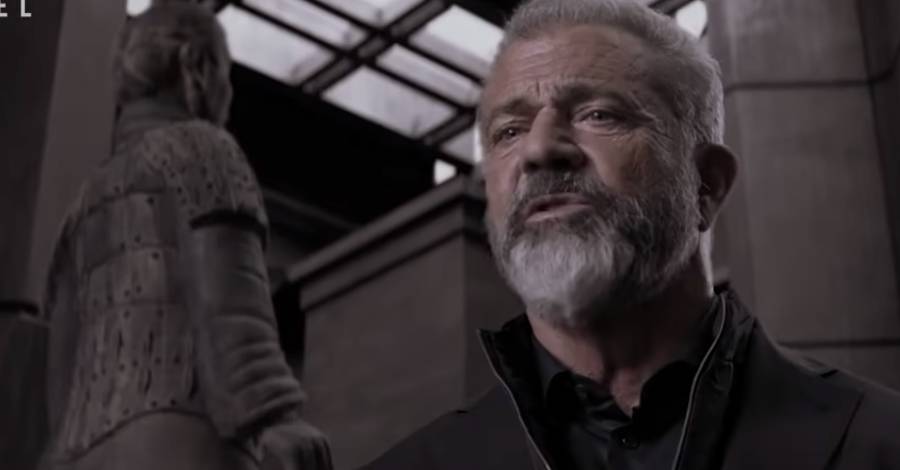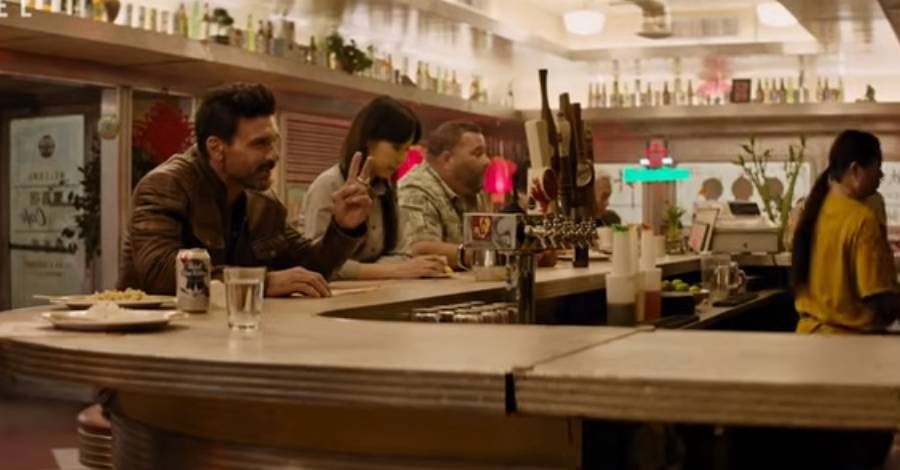Boss Level, directed by Joe Carnahan, offers an action-packed, mind-bending experience with a unique premise—a relentless time loop, brutal combat, and a protagonist trying to escape a constant cycle of death. The movie blends elements of sci-fi, action, and dark humor, bringing a fresh take on the time-loop genre, reminiscent of films like Groundhog Day and Edge of Tomorrow.
With engaging fight sequences, impressive performances, and a gripping storyline, Boss Level keeps viewers on the edge of their seats. This article dives deep into the movie’s narrative, exploring the plot, character motivations, and the intense and shocking ending. The article also analyzes the philosophical undercurrents of the film and how it reflects deeper existential questions.
Movie Summary: The Relentless Loop of Death

The movie follows Roy Pulver (Frank Grillo), a retired special forces operative, who finds himself trapped in a never-ending time loop. Every day, Roy wakes up to find that he is about to die, repeatedly killed by a group of highly skilled assassins led by the villainous Colonel Clive Ventor (Mel Gibson). However, each time he dies, Roy resets to the same moment—his death at 12:05 PM—and starts the day again, forced to repeat the same sequence of events.
Roy’s only chance of survival lies in his understanding of the loop and finding the key to breaking it. Over time, he pieces together clues, confronts enemies, and uncovers a complex conspiracy. It turns out that the time loop is part of a secretive government experiment. In the process, Roy learns that his estranged wife, Jemma (Naomi Watts), and son, Joe (Talan Bradley), are deeply involved in the project. As Roy’s awareness of his situation increases, so does his determination to break free from the cycle of death and save those he loves.
The Ending of Boss Level – A Shocking and Satisfying Twist

The final act of Boss Level brings the time loop narrative to an exhilarating conclusion. After numerous attempts to figure out how to break the cycle, Roy finally discovers that the key to ending the loop lies in Colonel Ventor’s nefarious experiment. The time loop is a result of a failed experiment in temporal manipulation, created by Jemma in collaboration with Ventor.
In the climactic scene, Roy confronts Colonel Ventor and, in a final, high-stakes battle, manages to kill him. Ventor's death is symbolic—it signifies the destruction of the experiment and the system that has trapped Roy in the loop. However, Roy realizes that the loop isn't just about him; it also affects his relationship with Jemma and their son.
The twist in the ending is that Jemma, Roy's ex-wife, is not an unwitting participant in this experiment. Instead, she becomes a central figure in trying to stop it. At the very end, after Roy kills Ventor, he resets the loop one last time, this time with knowledge of how to manipulate it. He chooses to go back to a moment earlier in time, effectively preventing the entire experiment from happening.
In the final moments of the film, Roy wakes up, and this time, he finds himself in a timeline where the loop never started, and he can lead a normal life with Jemma and his son, free from the destructive experiment.
Why Did the Ending Turn Out This Way?

The ending of Boss Level is both satisfying and thought-provoking, bringing closure to Roy’s arc while also tackling larger themes of fate, redemption, and free will.
1. Closure for Roy and Jemma
Throughout the film, Roy is trapped in a cycle that not only results in his repeated deaths but also reflects his unresolved relationship with Jemma. His dedication to breaking the loop is intertwined with his desire to redeem himself in her eyes and build a better future for their son. The ending symbolizes the possibility of starting over—of finding peace and closure after years of pain and regret.
2. Breaking the Cycle
The time loop motif is commonly used in films to explore themes of repetition, learning, and evolution. Roy’s ability to finally break the loop demonstrates the power of knowledge, self-awareness, and change. Through his repeated experiences of death and failure, Roy learns from each iteration, ultimately realizing that the cycle isn’t just about surviving; it’s about fixing the mistakes that caused the loop in the first place.
3. The Role of Free Will and Redemption
In the final moments, Roy’s ability to choose to reset the loop and change his fate speaks to the human desire to control one’s destiny. He doesn’t passively accept the loop as fate; instead, he actively makes choices to change it. The ending suggests that free will can help break the chains of destiny, allowing for redemption, no matter how dire the circumstances.
Themes in Boss Level
1. The Repetitive Nature of Life and the Desire for Change
At its core, Boss Level is a film about the cyclical nature of life. Roy's constant deaths can be seen as a metaphor for the endless struggles individuals face in their lives. Just as Roy keeps dying in the same way, many people feel as though they’re stuck in patterns of behaviour or circumstances. The film explores the human need to break free from these cycles and find meaning in life, suggesting that while the path to change may be filled with hardship and failure, persistence and self-awareness can lead to transformation.
2. Redemption Through Action
Roy's journey through the time loop is also a path to personal redemption. Throughout the film, he is given countless opportunities to correct his mistakes and grow. His quest to break the loop is about more than just survival; it’s about reconciling with his past and becoming a better person for his son. By taking responsibility for his actions and confronting his past mistakes, Roy earns a second chance at life.
3. Love and Family
Roy's motivation to break the time loop is ultimately tied to his love for his family. His desire to protect his son and reconcile with Jemma provides emotional depth to the film, grounding the action-heavy plot in a more human story. The ending suggests that love and family can provide the necessary drive to overcome the most extreme circumstances.
The Viewers’ Reaction to the Ending
The ending of Boss Level left viewers with mixed but largely positive reactions. The film’s ability to subvert the typical time-loop narrative was praised, particularly in how it linked the loop to Roy’s personal growth. The twist involving Jemma and Roy’s redemption arc was seen as a satisfying conclusion, bringing a sense of closure to the story while still leaving room for speculation about the alternate timelines.
Many viewers were also impressed by Frank Grillo’s performance as Roy, whose character evolves from a hardened, cynical man to someone seeking redemption and a new beginning. The film’s mix of action, humor, and emotional depth allowed it to stand out in the action genre, making it a hit with fans of mind-bending thrillers.
Some viewers, however, found the ending a bit too convenient or felt that it relied on too many traditional tropes of the genre. The idea of simply resetting the loop to fix everything was seen by some as an easy way out, undermining the complexities introduced earlier in the film. However, most viewers appreciated the payoff of Roy’s transformation and the emotional weight of the conclusion.
Conclusion: A Groundbreaking Time-Loop Thriller
Boss Level is an action-packed, thought-provoking film that offers more than just high-octane thrills. Through its innovative take on the time-loop narrative, it explores deeper themes of redemption, family, and personal growth. The ending provides a satisfying resolution to Roy's arc, allowing him to break free from his repetitive cycle and make the ultimate choice to change his fate. The film’s combination of action, humor, and emotional depth makes it a standout addition to the time-loop genre.
In the end, Boss Level proves that even in the most extreme circumstances, the power of self-awareness, love, and redemption can change the course of one’s life. While the film may leave some questions unanswered, it offers a thrilling and heartwarming conclusion that resonates with viewers long after the credits roll.






